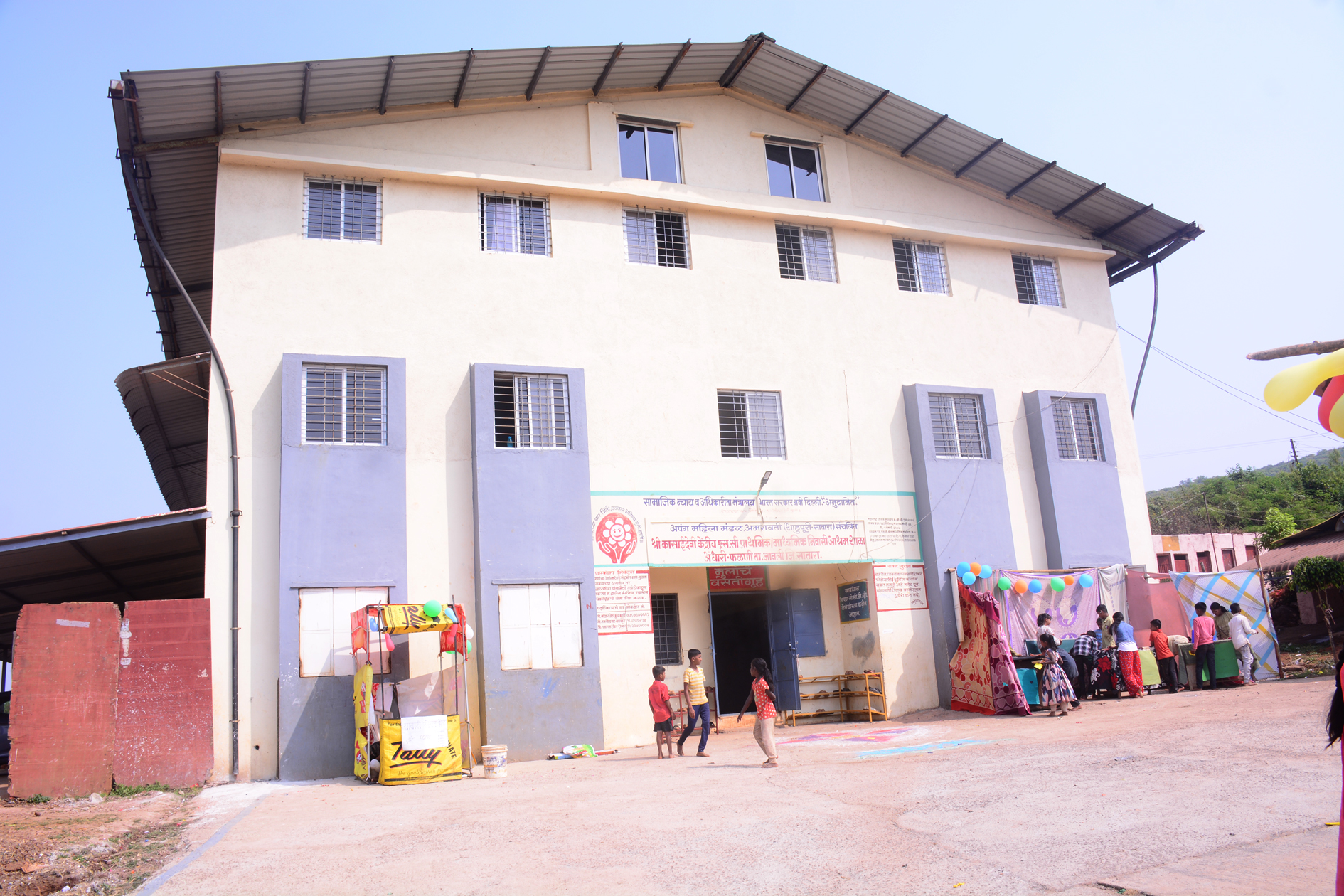The Apang Mahila Mandal Amaravati at Satara runs the residential school, named “SHRI KASAIDEVI CENTRAL PRIMARY AND SECONDARY S.C. RESIDENITAL SCHOOL” Andhari (Phalani) Tal. Jaoli Dist. Satara. The residential school is registered with its office located at Shahupuri, Satara. It is recognized by the Government of India’s Department of Social Justice and Empowerment (Letter No. 11020(13)-19/2012SCD III) and by the Government of Maharashtra (B.C.H.-2010/MAVAK.PAR. KRA. 12/SHIKSHAN 2, Mantralay Mumbai 32, dated March 6, 2012). Additionally, it is recognized by the Maharashtra SSLC Board (Code Medium S-21.01.31, year 2019-20, dated December 16, 2020).
The school provides admissions primarily for the wards of underprivileged children, with a focus on those from backward castes, to promote their education and development. All facilities offered at the school are provided free of cost, ensuring that every child has the opportunity to learn and thrive in a supportive environment.

The School is approximately 30 Kms from Satara City Post Office. It is approximately 300 meters from the main Satara – Kas Bamnoli State Road and is located near the scenic Kas Lake and the Kas Platue, recognized for its international heritage. School is accessible via well-maintained roads year-round.
The School lies on a hilly plateau in the Western Ghats. Surrounded by lush flora and fauna. The area is free from industrial pollution, benefiting from cool westerly winds and a pleasant climate, especially during the academic year.
Positioned away from village populations, the School maintains a high level of privacy and isolation throughout the year. The school closes for vacations from July 1 to August 10 due to heavy rainfall. The climate is generally pleasant during summer and cold in winter.
School Infrastructure
Hostels: Separate buildings for boys’ and girls’ hostels, equipped with bunk beds and mattresses for comfortable accommodation.
Classrooms: Well-equipped classrooms with e-learning sets to facilitate modern teaching methods.
Computer Lab: A dedicated computer lab for basic computer education, enhancing students’ digital skills.
Kitchen and Mess: A fully functional kitchen and mess to provide nutritious meals for all students.
Safety Measures: The school premises are monitored by CCTV coverage, ensuring comprehensive surveillance and enhancing the safety of all students and staff.
Water Supply: The school’s water needs are met through a pipeline connected to a nearby spring and a well located 500 meters away, ensuring there is no water scarcity.
Playing Area: The school features a dedicated play area equipped with swings, seesaws, and slides. This space is designed to promote physical activity, creativity, and social interaction among students, ensuring a well-rounded development in a fun and safe environment. This infrastructure supports a conducive learning environment for all students.
Daily Needs of Students
Each student receives essential items yearly, including:
- Bedding and Clothing: Bedsheets, pull-overs, two sets of school uniforms, civil dresses, and footwear.
- Educational Materials: School books and notebooks to support their learning.
Nutrition:
- Meals: Students are served traditional rural Maharashtrian food for breakfast, lunch, and dinner, with a sweet dish once a week.
- Snacks: Milk or tea is provided in the morning and afternoon, accompanied by light snacks.
- Special Meals: Special vegetarian or non-vegetarian dishes are served once a month.
Monthly Supplies:
Students receive daily necessities once a month, including notebooks, stationery, soaps, toothpaste, toothbrushes, and hair oil. A hairdresser visits the school monthly to provide haircuts.
Health Services:
- In case of emergencies, medical assistance is available via the 108 ambulance service. For common ailments, care is provided at the Primary Health Centre (PHC) in Bamnoli, while serious cases are referred to the Civil Hospital in Satara, 30 kilometers away.
- The school collaborates with NGOs like Lions International and Rotary Clubs to organize regular health check-up camps.
These provisions ensure that students have their daily needs met, allowing them to focus on their education and overall well-being.
